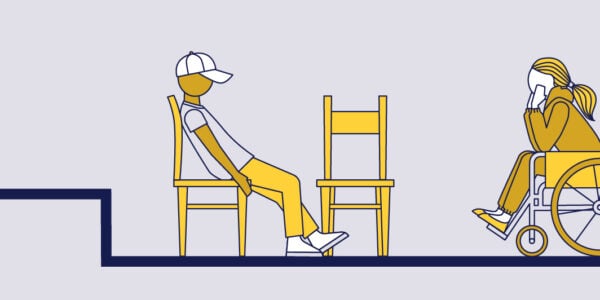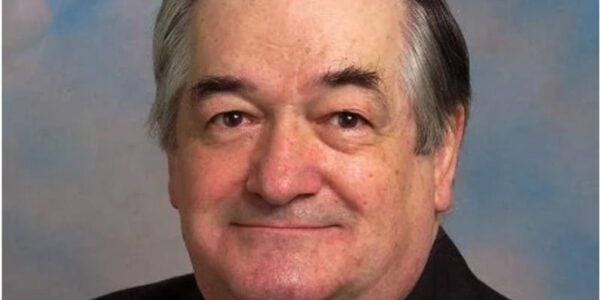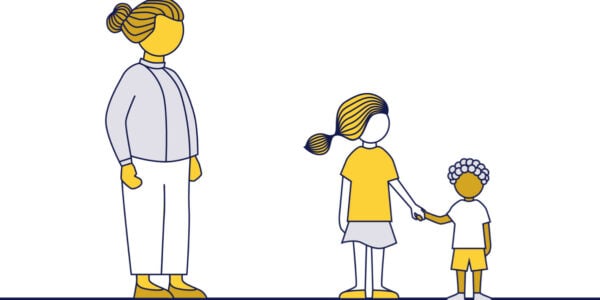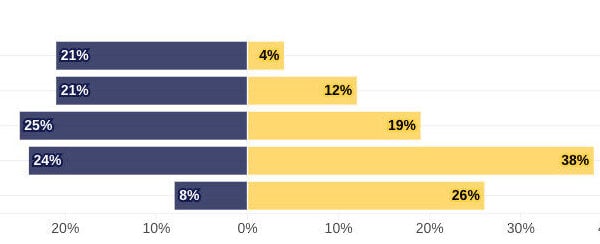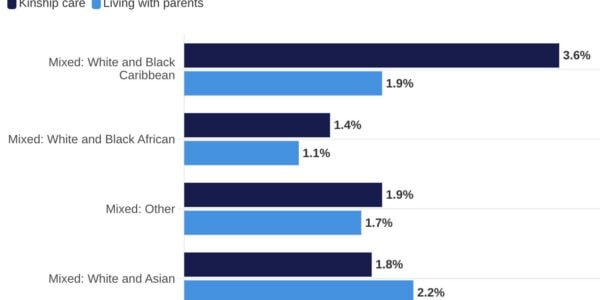New research published in November has painted a very concerning picture of how sexual abuse of children in family settings is identified, reported and responded to across the social care system. But training spearheaded by Anna Glinski, Deputy Director of Knowledge & Practice Development at the Centre of expertise on child sexual abuse (CSA Centre) is making steps to change this at a systematic level. The CSA Centre’s comprehensive training programme is being picked up by local authorities and in the voluntary sector, and is already having hugely positive outcomes.
Concerning findings from recent research
“I wanted them all to notice”: Protecting Children and Responding to Child Sexual Abuse Within the Family Environment, is an important new review from the Child Safeguarding Practice Review Panel, conducted by the CSA Centre and published last week. The review finds that practitioners need to build their practice confidence through training and support in recognising and responding to concerns of sexual abuse. The review finds that this need is particularly acute in response to sexual abuse in family settings and that these issues are often multi-agency and systematic. Among the recommendations in the review is a move towards a more child-centred system that recognises the challenges children may have in discussing these difficult and traumatic experiences, and the systematic change needed to build practitioners’ confidence. A vital change, to ensure they have the skills required to name and respond to the concerns of the child and feel able to discuss this and respond appropriately.
“One of the biggest problems is that child sexual abuse is not really part of social workers’ training, shockingly, despite it being one of their four main areas of child protection work”, explains Anna Glinski who has specialised in child sexual abuse work for the majority of her career, including acting as an expert witness in the family courts on child sexual abuse cases in her previous role. Now, as part of her role at the CSA Centre, Anna has been developing a new ‘ripple effect’ training programme that will allow local authorities to better equip many more social workers to deal with this very serious and difficult issue in a more affordable way.

Changing approaches and ways of thinking for social workers
Anna explains that, without specific training on child sexual abuse, social workers simply weren’t confident in their abilities to sensitively and effectively handle situations where child sexual abuse may be happening. “The problem is that, without proper training, many social workers aren’t confident in even talking about child sexual abuse. They may also have a patchy understanding of what this looks like, and how and why it happens. Their knowledge is likely gleaned from the same places as everyone else, which is to say television and the media, which is often a simplistic or misinformed narrative.
The CSA Centre’s Child Sexual Abuse Practice Leads Programme aims to encourage and support better conversations on sexual abuse. Run through interactive group discussions, one-to-one support, and with insights from guest experts, the sessions aim to arm social workers with the skills not only to better identify the signs of child sexual abuse, but also to better centre the wellbeing of the child in their response.
The problem is that, without proper training, many social workers aren’t confident in even talking about child sexual abuse. They may also have a patchy understanding of what this looks like, and how and why it happens.Anna Glinski, CSA Centre
Creating a ‘ripple-effect’ of systematic change
Coventry Country Council wanted to establish a practice lead role to provide an in-house consultation service so that all social workers within the local authority had access to the knowledge gained from the Child Sexual Abuse Practice Leads Programme. Hannah Bedford is the Family Valued Team Manager at Coventry County Council. After completing the child sexual abuse training, and having been involved in the development of the training during the pilot phase, Hannah is now also one of the practice leads in Children’s and Education Services for her team. “Child sexual abuse thrives in secrecy, but for so long the professional approach had also been to not talk about it. For a child’s welfare, simply not talking about this issue just isn’t the right thing to do”, explains Hannah.
The team in Coventry first worked with Anna and the CSA Centre back in 2018 when the training was going through its pilot phase. “The pilot was very collaborative,” says Hannah. “We were able to feed in how we would see it fitting into our day to day and our working practice. Though I have to say the pilot was excellent, I don’t think we had anything critical to say.”
“There was also excellent mental health support throughout”, says Hannah. “Obviously, talking about this stuff can be tough, but we had regular check-ins, which were really valuable.”
Hannah explained that the consultations between the social workers and practice leads foster a reflective space, which is very helpful. “The worker is supported to unpick their thinking in relation to what is going on for the child, and offers recommendations in relation to next steps. Some examples of issues bought to the consultations are considering how to approach life story work with a child or young person who has experienced sexual abuse, thinking about disclosure wider than a verbal disclosure from a child (i.e. signs and indicators of possible sexual abuse), support in speaking with children about sexual abuse or harmful sexual behaviours, and support in considering how to approach an ability to protect assessment and intervention with non-abusing parents, support with safety planning where there is a person in the child’s life who could pose a sexual risk to them, and support in considering when a specialist assessment is needed.”
The pilot was very collaborative. We were able to feed in how we would see it fitting into our day to day and our working practice.Hannah Bedford, Family Valued Team Manager, Coventry County Council
A second cohort completed the training following the pilot phase. Hannah and Anna both agree this has led to great positive changes to working practice. One major change is the level of confidence social workers now have in tackling this issue. “The training has helped us to teach newly trained social workers, in particular, to feel comfortable talking about this”, says Hannah. This has helped them to centre a child’s welfare, in particular when police cases may be ongoing. “Police cases around child abuse can often be very lengthy. This training has helped us to focus on a child’s wellbeing during that time. For example, in making sure they understand they are not to blame.”
“There’s sometimes a fear,” adds Anna, “around even asking the question, because what if a social worker brings it up and they’re wrong? The training helps them to see the signs, to read non-verbal signifiers from children for example, but also to understand the complex way this also relates to other issues in the home, including neglect or substance misuse.”
There’s sometimes a fear around even asking the question, because what if a social worker brings it up and they’re wrong?Anna Glinski, CSA Centre

Now, Hannah and three other child sexual abuse practice leads in Coventry, are working closely with Anna to go into the next phase – delivering the training themselves to more people in Coventry. The aim is to train more social workers to be Practice Leads in-house without needing to rely on the CSA Centre to provide this programme and to equip more social workers with the skills to provide the training and offer consultations within their own teams. This ‘peer-to-peer’ model is far more cost effective and scalable for local authorities..
Hannah admits that there have been challenges, but she feels that more social workers completing this training is essential for child welfare. “Time was a big challenge”, she explains. “It’s taken a committed core of people to do this. That’s something we’re thinking of, how to manage expectations with management around the time commitment. During the second phase of training, after the pilot, the sessions were spread over eleven months. This allowed the social workers to reflect on how it fit into their day-to-day work and feed this back.”
“Management buy-in is essential”, says Anna. “One of the reasons the training has been so successful in Coventry is because we’ve had that, and senior management really understood the value of this training.”
This in-house approach to child sexual abuse training is the first of its kind. So far over 130 people, including within local authorities and voluntary organisations, have completed the it. There is ongoing support available through the Practice Leads Network, where regular updates on further research and training are provided.
Management buy-in is essential. One of the reasons the training has been so successful in Coventry is because we’ve had that, and senior management really understood the value of this training.Anna Glinski, CSA Centre
More information on the training and support offered is available here.


